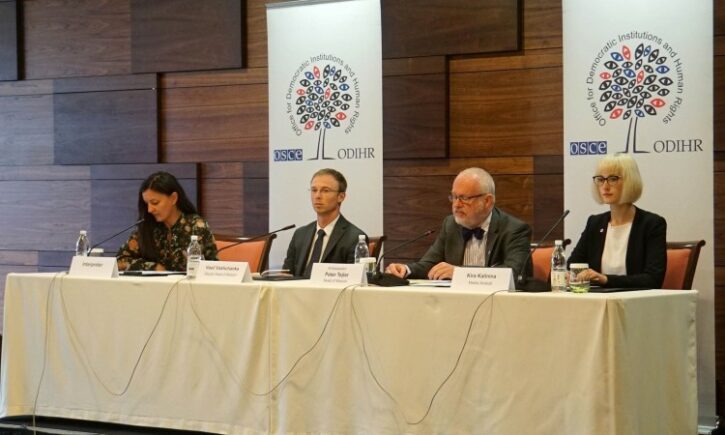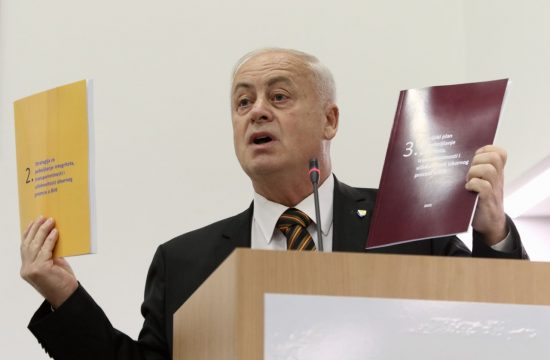
The Office for Democratic Institutions and Human Rights (ODIHR) formally opened an election observation mission for the general election in Bosnia and Herzegovina, taking place on October 7, a press conference announced on Tuesday.
The ODIHR, which is the principal institution of the Organization for Security and Cooperation in Europe (OSCE) dealing with the “human dimension” of security, will observe the elections for their compliance with OSCE commitments and other international obligations and standards for democratic elections, as well as with national legislation.
Ambassador Peter Tejler, head of the mission, told the media it was the mission's crucial significance to have the voters trust the integrity of overall election process, a chance to vote freely and that their votes will be counted in the right way.
“It is my mission to follow the election process, prior, during and after the election day in line with the mandate,” Tejler said adding he will not be interfering with the election but will collect the information to show whether the election process was transparent or not.
Opening press conference of the OSCE/ODIHR EOM to #Bosnia and Herzegovina concluded with my deputy Vasil Vashchanka and media analyst Kira Kalinina. Here is the press release: https://t.co/CIIKOIYyGL pic.twitter.com/waYR4n1BZf
— Peter Tejler (@PeterTejler) August 28, 2018
It was emphasised during the Tuesday press conference that the observers will closely monitor the voter registration process, campaign activities, the work of the election administration and relevant governmental bodies, election-related legislation and its implementation, and the resolution of election-related disputes.
As part of the observation, the mission will also monitor the media coverage of the campaign.
On election day, observers will monitor the opening of polling stations, voting, the counting of ballots and the tabulation of results.
For the election day, the ODIHR election observation mission will join efforts with delegations from the OSCE Parliamentary Assembly, the Parliamentary Assembly of the Council of Europe and the NATO Parliamentary Assembly.
Bosnia and Herzegovina's citizens will cast their vote on October 7 and elect members of the state tripartite Presidency, entity presidents and vice presidents, as well as the members of the state, entity and cantonal parliaments.




